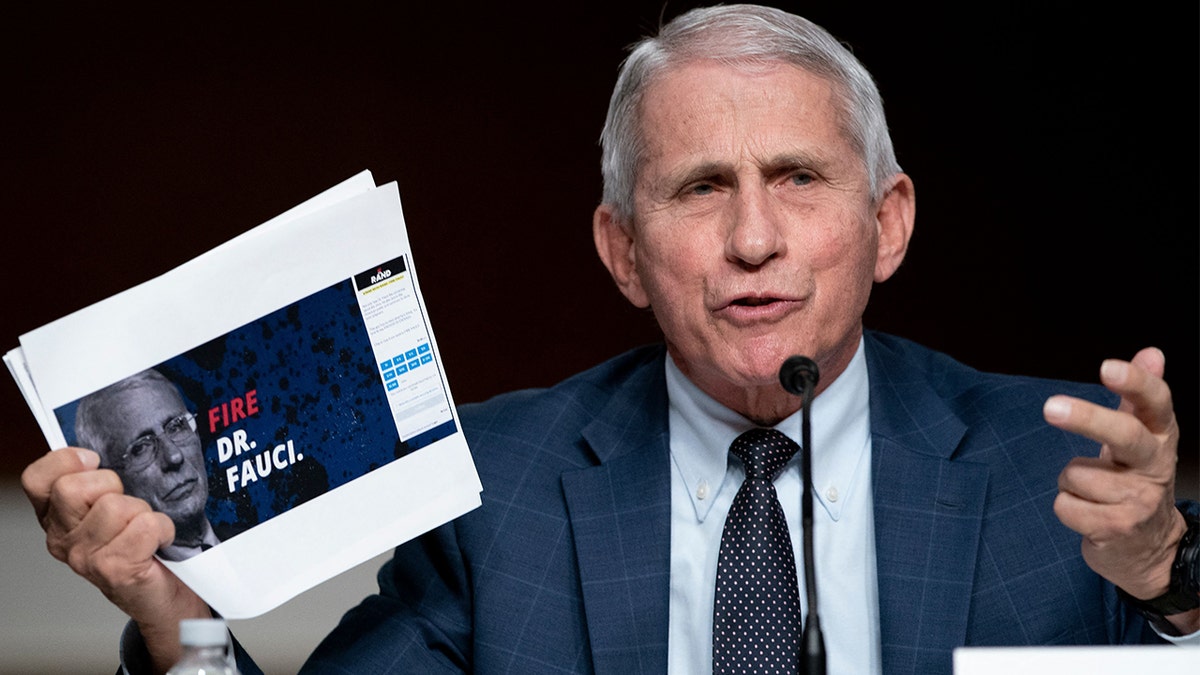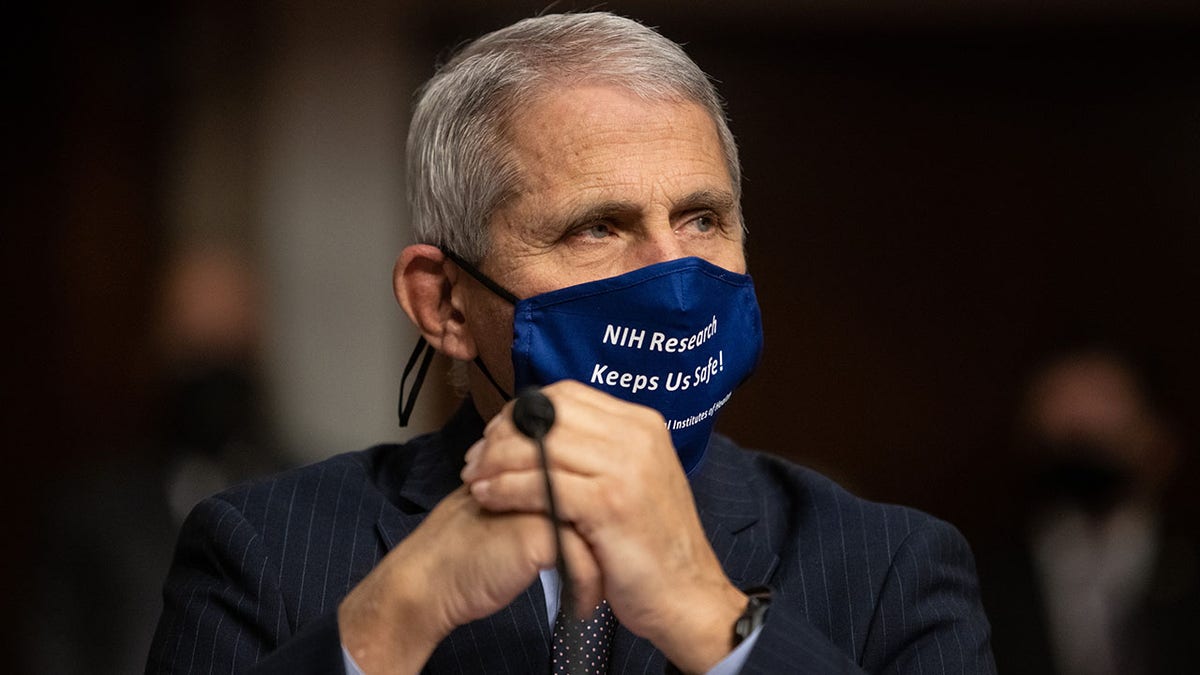Former NYT editor blasts Fauci for mishandling COVID origin theories
Former New York Times science editor Nicholas Wade told the House Select Subcommittee on the Coronavirus Pandemic on Wednesday that Dr. Anthony Fauci "seriously" mishandled determining the origins of COVID-19.
Former New York Times science editor Nicholas Wade called out Dr. Anthony Fauci on Wednesday during a House hearing, saying he, along with former NIH Director Francis Collins, "seriously" mishandled the issue regarding COVID-19 origins.
"It’s hard to believe that in the twilight of their long careers, they would seriously mishandle an issue as important as the origin of the COVID virus, yet that is what the evidence seems to point to," Wade said during the hearing.
During the House Select Subcommittee on the Coronavirus Pandemic hearing, Wade said that the "campaign to discredit" the lab-leak theory began on Jan. 31, 2020.
Wade said Fauci received an email on that day from four virologists, led by Kristian Andersen Scripps of research, who concluded that the SARS-CoV-2 virus, "could not have been made in nature," Wade said.

Former New York Times editor Nicholas Wade talks to the House Select Subcommittee on the Coronavirus Pandemic. (Screenshot/HouseSubcommitteeCoronavirusPandemic)
COVID ORIGINS HEARING TO FOCUS ON FAUCI'S ROLE IN DISPROVING LAB LEAK THEORY
"Fauci was probably not too pleased to hear that the virus might have escaped from research that his agency has funded," Wade said.
Wade added that the virologist's reversed their conclusion about the origins in just four days.
"A strange thing happened to the virologist's conclusion within four days. Anderson, in an email on Febuary 4, repudiated, deriding lab-leak as a crackpot theory," he said. "What made him change his mind? No new scientific evidence about the virus came to light between January 31 and February 4, but from that one hundred eighty degree reversal, a whole campaign was able to be developed, including highly influential articles placed in Nature Medicine and the Lancet."
The author and former science editor also said those supporting the natural origin story got their story out first.

Dr. Anthony Fauci, White House chief medical adviser and director of the NIAID, shows a screen grab of a campaign website while answering questions from Sen. Rand Paul, R-Ky., during a Senate Health, Education, Labor, and Pensions Committee hearing to examine the federal response to COVID-19 and new emerging variants on Jan. 11, 2022, at Capitol Hill in Washington. (Photo by GREG NASH/POOL/AFP via Getty Images) (GREG NASH/POOL/AFP via Getty Images)
ANOTHER US AGENCY ASSESSES COVID-19 ORIGIN LIKELY A CHINESE ‘LAB LEAK’: REPORT
The natural origins camp "very successfully painted lab leak as a conspiracy theory," Wade said.
Wade argued that the media "failed" to report on "contrary evidence" after swallowing the natural origin story.
"The national media swallowed the natural origins story unskeptically, and once committed to it, failed to report important contrary evidence," Wade said.

Anthony Fauci, director of National Institute of Allergy and Infectious Diseases at NIH, looks on before testifying at a Senate Health, Education, and Labor and Pensions Committee on Capitol Hill, on September 23, 2020 in Washington, DC. (Photo by Graeme Jennings- Pool/Getty Images) (Getty Images)
CLICK HERE TO GET THE FOX NEWS APP
The ranking Democratic member on the committee, Rep. Raul Ruiz, D-Calif., objected to Wade's presence as a witness during his opening remarks.
Ruiz said that Wade, who wrote a seminal article examining whether COVID-19 had leaked from a lab in Wuhan, China, had written a book in 2014 that was "applauded by White supremacists."
Wade wrote a 10,000-word article on Medium In May 2021 titled, "The origin of COVID: Did people or nature open Pandora's box at Wuhan?" in which he questioned the origins of the coronavirus, presenting evidence that suggested it could have leaked from the Wuhan Institute of Virology.
Fox News Digital's Chris Pandolfo contributed to this report.


